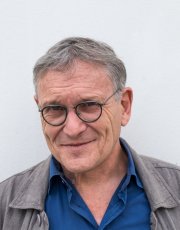
No credit for Drs Knock
Rony Brauman
The influenza A (H1N1) epidemic, which is rapidly spreading throughout Europe at the time of writing, has practically disappeared from the southern hemisphere with the advent of their springtime. The number of deaths from the virus there will be minimal compared to those from ordinary seasonal ‘flu from well-known viruses, and even more so compared to infectious and parasitic diseases (particularly malaria, AIDS and tuberculosis), which are still ravaging the southern half of the globe. To avoid looking irresponsible, states and international organisations have had, therefore, to raise the alarm before the problem rears its head. It is clear that the multifaceted roles of these organisations to warn, act, inform and reassure, all at the same time, is difficult, because expectations run high and scientific foundations in this area are shaky. It is also clear, judging from the warnings issued repeatedly year after year, that the policy of active communication adopted by health bodies has generally not been successful.
The mathematical models used to predict the spread of mad cow disease, SARS and avian influenza are obviously based on flawed hypotheses, and it seems reasonable to be sceptical of the current prediction, which states that a third of the world’s population will be infected with influenza A in the coming months. We will know soon enough anyway. But a recent article considered the problem from a different, more political, angle. In its editorial of September 2009, the scientific journal PloS MedicineThe PLoS Medicine Editors (2009) Ghostwriting: The Dirty Little Secret of Medical Publishing That Just Got Bigger. PLoS Med 6(9): e1000156. doi:10.1371/journal.pmed.1000156says that most of its therapeutic trials of new medicines, published under signatures from university doctors, were systematically manipulated. They are written by ghost writers from the pharmaceutical industry and then offered to journals, after being checked and signed by university professors. The professors may indeed be consulted before the set of results is collected, but they are far from being the authors of the study they put their name to – and furthermore clinical and biological signs are always open to interpretation. Expecting scientific objectivity under these circumstances is akin to asking the captain of a team to be an impartial referee of the match as well.
The practice is not new, and it has always come in for public criticism, but a recent case in the United States highlighted the issue and demonstrated the disastrous effects that can result from this misuse. Moreover, this practice is currently on the increase. If we are unable to recognise the efficacy and real risks of a medicine produced in ordinary conditions, how can we be so sure in an emergency scenario? The general distrust of the H1N1 vaccine is based partly on weak arguments, such as a total opposition to all vaccinations, sometimes on whacky ones, such as extermination conspiracies, but also on some excellent arguments, for example, the fact that although vaccination offers almost full protection against tetanus, it works against influenza in an unpredictable and poorly controlled way. And the secret clauses in production contracts between the industry and the government, which are clumsily justified with reference to protecting the manufacturing process, serve to merely heighten suspicion. Like the banking system, the pharmaceutical industry is engaged in a madcap race for dividends, and it is difficult to see any reason to trust it in these troubled timesFor more information, see Le Grand secret de l’industrie pharmaceutique, Philippe Pignarre, Ed. La Découverte, 179 p., Feb. 2003.. Stopping the industry from conducting clinical trials, and assigning them instead to independent agencies, funded by public money, is the only way of bypassing any conflict of interest where the industry ends up acting to maximise its profits to the detriment of all.
However, the benefits and side effects of medicines are not the only things that count. It is important to study them as carefully as possible of course, but it is equally important to determine the primary goals of clinical research in terms of public health criteria. Unfortunately, the pharmaceutical industry’s influence on decision-making in this domain is growing, and it naturally steers it towards its commercial interests. It must no longer have sole responsibility for deciding the programmes of clinical research if we are to escape a “drug crunch” fate, the health equivalent of the banking crisis.
To cite this content :
Rony Brauman, “No credit for Drs Knock”, 1 décembre 2009, URL : https://msf-crash.org/en/medicine-and-public-health/no-credit-drs-knock
If you would like to comment on this article, you can find us on social media or contact us here:
Contribute
